|
Salmon, unceremoniously plonked and piled in the supermarket chill display. It's cheap, it's abundant, it's portioned, it's colourful, it's easy, it's available. But according to Tasmanian author and Booker Prize winner, Richard Flanagan, it's toxic. Salmon was once a special-occasion food, wild caught and seasonal. Before salmon farming began (Norway c. 1975) smoked wild salmon served in hotels and restaurants was handled like gold. The salmon was weighed, the weight recorded in a book. The required slices were removed and plated, possibly draped across some Iceberg lettuce with a twisted slice of lemon and an onion ring. The salmon was then re-weighed and the weight recorded. It was precious. Handled with awe and respect, staff in "cold larder" would never dare to sneak a snack. Years later, I might be making up sandwiches for my nieces, their primary school packed lunches, with left-overs (farmed salmon) from a catering job "Oh Cathy, not smoked salmon again!," they whinged. Like chicken, salmon has become an industrialised product, the process touted as feeding a hungry world, affordable and easy to prepare. In reality, the cost could be just too great. 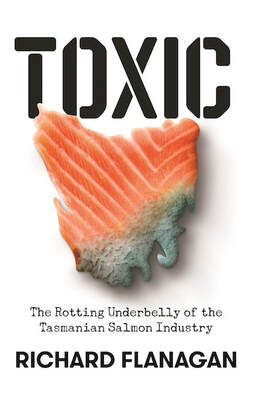 So what has brought on this soul searching? Our Gastronomy Book Club is going well. We meet monthly and the glass of wine and a few cashews has grown to mini banquets. We're helpless to resist. Our readings have ranged from romantic, foodie memoirs where tables groan with platters, platters brim with abundance and food bursts with flavour to hard hitting, thought provoking, often angry diatribes. This month we're reading the newly released Toxic and seeing the underbelly of the salmon farming industry. Flanagan calls farmed salmon "a highly artificial, chromosomally manipulated, dyed, fatty protein with decreasing omega-3 levels". He challenges the image promoted by the industry of idyllic pristine Tasmanian waters producing a clean, green, and healthy product.
Left: CM's Coulibiac, painstakingly done with the herbed pancake enclosing the fish. (19thC Limoges) Right: My Coulibiac, a bit of a quickie but delicious, nonetheless. (1930s Royal Copenhagen) Finding sources of wild-caught Alaskan, Canadian or Scottish salmon seems extreme. So are we going to find alternates? I'll miss a sliver of smoked salmon on a crouton with sour cream and capers, and some salmon roe topping a runny omelette or a steamed Japanese savoury custard. I love the Lebanese tahini, yoghurt, walnut, red onion sauce on a whole fillet of salmon but most of all, will I find an alternative for the Coulibiac - a classic French dish copied from the Russian Kulibiaka, (when the two countries adored each other)? Is the book a wake-up call, exposing an environmental disaster, a suspect food product, corporate corruption and a failure of governance or is it leftie, subversive rubbish, from old green hippies protecting their holiday shacks? Or will we simply say ""Yes but... it's so convenient."
In my restaurant days, we ate many left-overs. Today, I couldn't face another spoon of Marquise au Chocolat but I never tired of salmon. But, I won't be eating it again. I'd rather eat the peanuts from a bar room floor. Join the conversation. Add a comment below👇🏾
17 Comments
Pauline
10/5/2021 09:36:26 pm
It’s about greed....to have what ‘they’ have, only, like McMansions, it’s all an illusion, and just as poisonous.
Reply
Not sure who "they" are. I was brought up to see the world as my oyster. It was true for me although I was open-minded enough to learn it was not true for everyone. As an egalitarian, I think we are all due some small luxuries and farmed salmon isn't it.
Reply
Adam Wynn
11/5/2021 12:32:15 am
Hi Cath,
Reply
Good tip about the "curing" of the fish with salt. I certainly got to dislike the cloying, rancid fattiness (and that's coming from a lover of fat).
Reply
Kym Dixon
11/5/2021 08:54:58 pm
Cath, I concur with all the points you have made.
Reply
Stephanie
14/5/2021 01:28:10 am
Cath, thank you so much for writing about this. I just read a report from some researchers -- 97% of all salmon consumed here in Sweden was farmed in Norway. Your blog post prompted me to search for the the source of the other 3% and I found it -- wild salmon from off the Swedish coast. Since wild stocks are also dwindling, it will be another project to check their sustainability.
Reply
Lovely to get this info from the source. We know that Norwegian aqua-business people advised Tasmania that the waters were not suitable for salmon farming, not deep enough to flush away the "debris". Here we are wondering whether Norwegian farmed salmon is a suitable option if we can get it.
Reply
ROSA MATTO
15/5/2021 07:30:46 pm
There was a very emotionally charged 'expose' on Tasmanian salmon some years ago on 4 Corners and we stopped eating it then. But Flannagan's book has depressed me so much because of its wider implications. Too sad.
Reply
Adrian
17/5/2021 11:40:38 am
Do we have much information on the impact of tuna farming at Port Lincoln? There's large reports at: https://www.pir.sa.gov.au/__data/assets/pdf_file/0005/231656/No_235_RESA_Final_Report.pdf - which is now a little out of date.
Reply
Sandra
24/6/2021 12:54:52 am
Hi Cath,
Reply
4/7/2021 05:03:25 pm
Lovely story. Yes, salmon was special. We can't wait for special anymore. We it all now, now - and cheap.
Reply
Diana Jaquillard
22/7/2021 11:41:58 am
Recently I saw wild-caught frozen fish, including salmon in the freezer at the Drake’s supermarket on Goodwood Road, which on inspection seemed viable to purchase and was reasonably priced.
Reply
Daniela
29/7/2021 09:55:18 pm
Love this! So well considered. I enjoyed listening to the author of the book on abc recently. Even tho I love salmon, I always wondered why my tum didn’t. I mean, it’s good ‘ol omega 3 food. Why am I feeling blah after eating it. Then I read about how they were farmed. So sad. And frustrating! I want to keep eating salmon, but how? Can’t imagine it not being in my food group, but for now, that’s what it is. Wild caught is a dream. So I guess it’s Coorong mullet! 😀
Reply
Diana Jaquillard
26/9/2021 11:18:52 am
Hi all fish lovers,
Reply
Leave a Reply. |
Categories
All
|
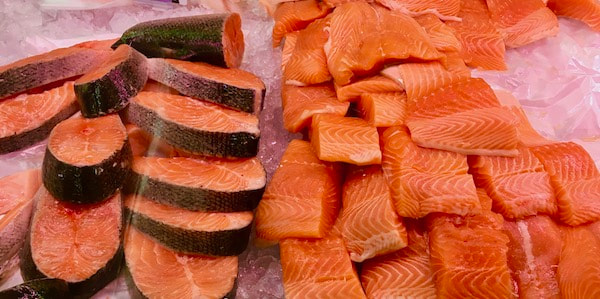
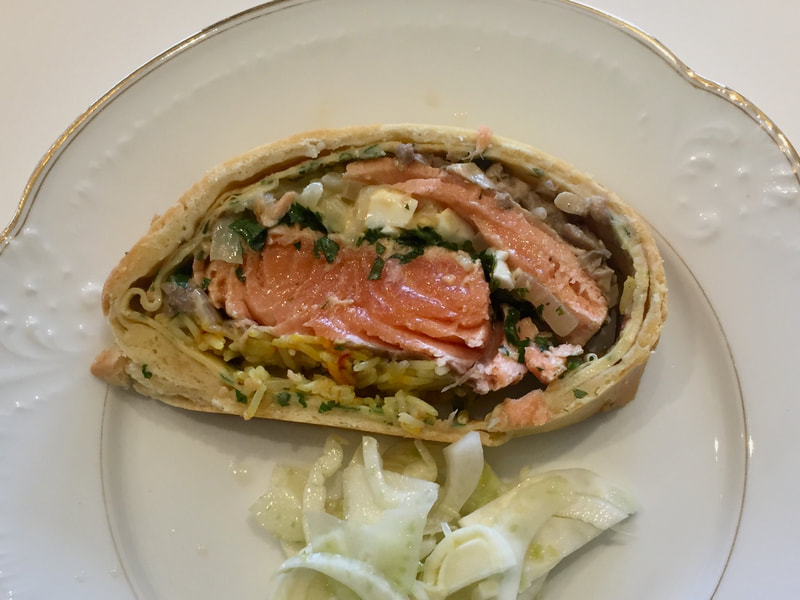
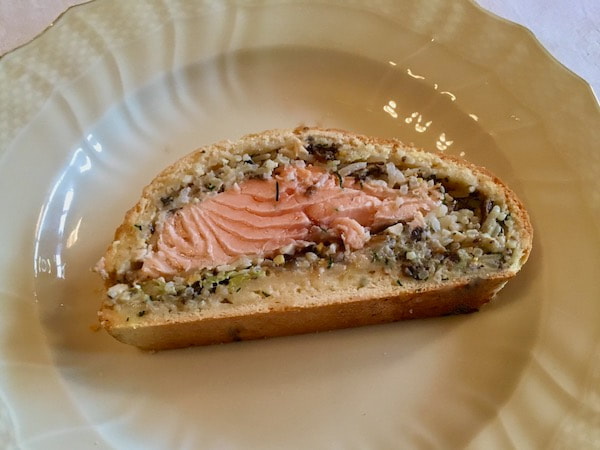
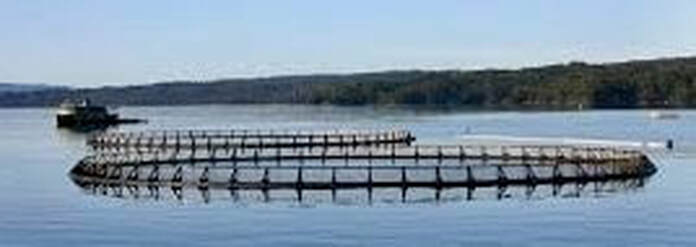
 RSS Feed
RSS Feed
